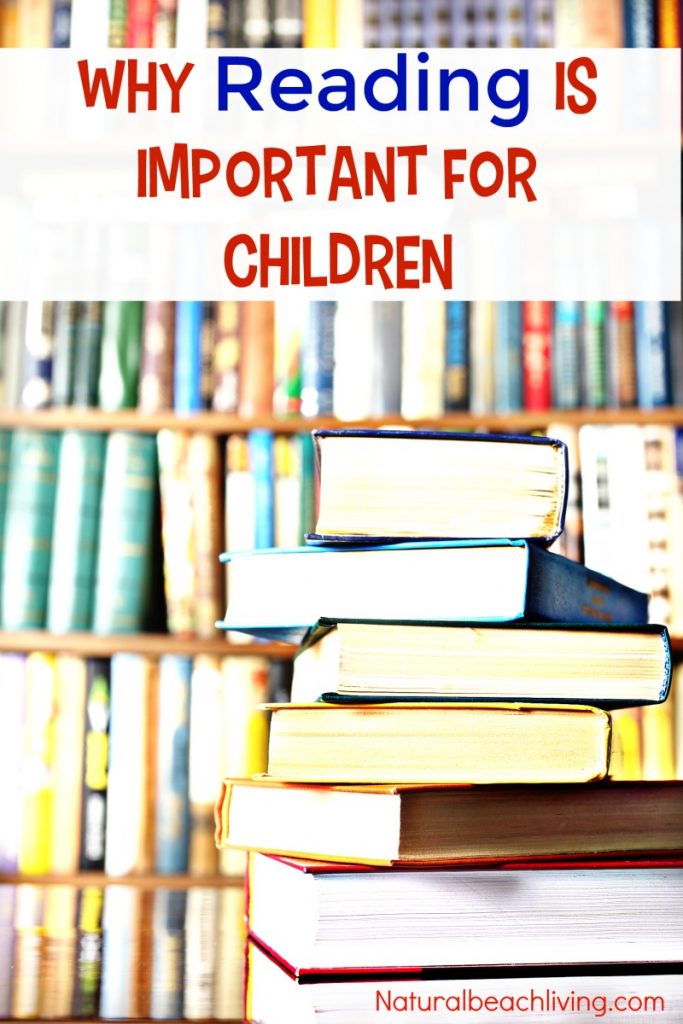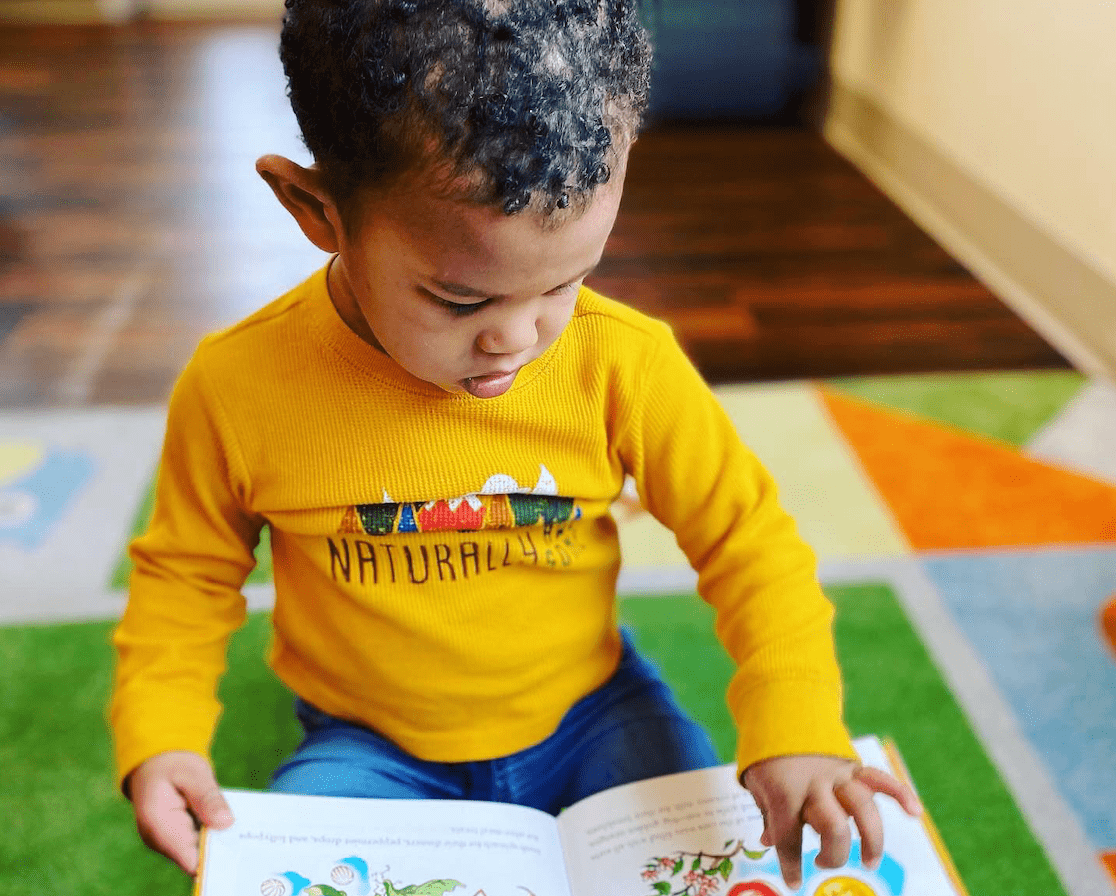Why is Reading Books Important for Preschoolers
Reading books is important for preschoolers as it enhances literacy skills and cognitive development. It also promotes imagination and creativity, laying a strong foundation for learning.
Introducing books at an early age fosters a love for reading and helps in language development. Children also learn about the world around them through various themes and characters in books, expanding their knowledge and understanding. Additionally, reading with preschoolers creates a strong bond between parents and children, nurturing emotional connections and communication skills.
Furthermore, it enhances concentration and focus, which are essential skills for overall development. Books play a crucial role in shaping a child’s early years and preparing them for future academic success and fulfillment.

Credit: www.naturalbeachliving.com
Cognitive Development
Cognitive development plays a crucial role in the early years of a child’s life. It encompasses the ways in which a child learns, thinks, and solves problems. Reading books is highly beneficial for preschoolers as it significantly contributes to their cognitive development.
Improved Vocabulary
Reading books introduces preschoolers to a diverse range of words and phrases, expanding their vocabulary. Exposure to new words through stories and imagery helps children to grasp the meaning and usage of words in different contexts, thereby enhancing their language skills.
Enhanced Imagination
Reading books fuels a preschooler’s imagination, transporting them to fantastical worlds, introducing them to characters, and encouraging them to visualize and create their own stories. This imaginative exploration promotes creative thinking and problem-solving skills, essential components of cognitive development.

Credit: ehe.osu.edu
Language Skills
Language skills play a crucial role in the development of preschoolers, as they serve as the groundwork for effective communication and comprehension. By nurturing language skills through reading, preschoolers can enhance their ability to express themselves, comprehend others, and expand their vocabulary.
Exposure To New Words
Reading books exposes preschoolers to a wide range of new words, fostering language development. Through exposure to diverse vocabulary, young children can grasp the meanings of unfamiliar words and integrate them into their speech and writing. This process stimulates cognitive growth and enriches their linguistic capabilities.
Better Communication
Engaging with books aids preschoolers in developing better communication skills. By observing how characters interact and express themselves, children can learn how to express their thoughts and engage in meaningful conversations. This active participation in the art of communication can bolster their confidence, enabling them to articulate their ideas and emotions effectively.
Social And Emotional Development
Reading books is essential for preschoolers as it supports their social and emotional development. Through books, children learn about different emotions and how to express themselves, empathize with others, and develop important social skills that will benefit them throughout their lives.
Increased Empathy
Reading books plays a vital role in nurturing a child’s social and emotional development. One of the key benefits is the increased empathy it encourages in preschoolers. Stories allow children to step into the shoes of different characters, experiencing their emotions and dilemmas firsthand. By relating to the characters and their struggles, preschoolers begin to understand and empathize with the feelings of others, building their emotional intelligence.
Improved Concentration
Another crucial aspect of social and emotional development in preschoolers is the ability to concentrate and focus. Reading books provides an excellent opportunity for young children to enhance their concentration skills. When engaging with a story, kids need to pay attention to the plot, characters, and details in order to follow along and comprehend. As they immerse themselves in the story, preschoolers learn to maintain their attention span and resist distractions, improving their concentration abilities.

Credit: www.thegardnerschool.com
Bonding And Parent-child Relationship
Enhancing the bond between parents and preschoolers, reading books plays a vital role in nurturing a strong parent-child relationship. It fosters interactive communication, encourages emotional connection, and aids in cognitive development. Through storytelling, parents can instill a love for learning and create cherished memories with their children.
Quality Time Together
Reading books with your preschooler creates an opportunity for quality time together, forging a stronger parent-child bond. In today’s fast-paced world, finding moments to connect with our children can be challenging, but reading books provides a perfect avenue for uninterrupted one-on-one time.
During this shared activity, you are both fully engaged, focused solely on the story and each other. By dedicating undivided attention to your child, you demonstrate your love, affection, and interest in their world. This focused time together helps your preschooler feel valued and builds a sense of security.
As you read together, encourage your child to participate in the experience by asking questions, discussing the illustrations, and making predictions about the story. This open dialogue cultivates active listening and critical thinking skills, fostering a deeper connection and understanding between you and your little one.
Strengthened Emotional Connection
Reading books with preschoolers promotes a strengthened emotional connection between parent and child. Through the pages of a story, children encounter a range of emotions, from joy and excitement to fear and sadness. As you read together, you can help your child navigate these emotions by talking about how the characters feel and relating them to real-life situations.
By exploring emotions together, you provide a safe space for your child to express their own feelings and concerns. This shared emotional experience establishes trust and empathy, strengthening your bond. As your child learns to identify and understand emotions through storytelling, they develop essential emotional intelligence skills that will benefit them throughout their lives.
Moreover, the act of reading and discussing stories can be a springboard for important conversations about topics like friendship, kindness, and empathy. Through these discussions, you can reinforce positive values and help your preschooler develop a moral compass.
In conclusion, reading books with preschoolers creates a valuable opportunity for bonding and nurturing a strong parent-child relationship. By dedicating quality time together and exploring emotions through storytelling, you foster a deeper connection and lay the foundation for your child’s emotional intelligence and moral development.
Academic Success
Preschoolers’ academic success greatly benefits from reading books, fostering language skills, cognitive development, and creativity. It also sparks imagination, enhances concentration, and cultivates a lifelong love for learning. Introducing books at an early age lays the foundation for academic achievement and overall well-rounded development.
Foundation For Learning
Reading books at a young age lays a strong foundation for learning, setting the stage for academic success in preschoolers. When children are exposed to books and read regularly, they develop essential early literacy skills such as vocabulary, phonemic awareness, and letter recognition. These skills serve as the building blocks for future learning and academic pursuits.
By engaging in reading activities, preschoolers are exposed to a variety of words and language patterns, expanding their vocabulary and enhancing their comprehension abilities. They learn to recognize and understand different sounds, leading to better phonemic awareness, which is crucial for successful reading later on. Moreover, through the colorful illustrations and captivating stories in books, children are encouraged to use their imagination and creativity, fostering their cognitive development.
Better School Performance
Reading books plays a significant role in improving the overall school performance of preschoolers. An early love for books instills a passion for learning, and research suggests that children who read regularly during their preschool years perform better academically in later grades.
When kids engage with books, they develop essential skills such as focus, concentration, and critical thinking. These skills directly translate into better classroom performance as they are better equipped to absorb information and participate actively in the learning process. Additionally, reading introduces children to different perspectives, cultures, and ideas, broadening their horizons and enabling them to think creatively and critically.
Through regular reading, preschoolers also develop better listening and speaking skills, improving their ability to communicate clearly and express themselves effectively. This not only enhances their participation in classroom discussions but also boosts their confidence and self-esteem.
In order to support the academic success of preschoolers, it is crucial to encourage and promote a love for reading from an early age. By making books an integral part of their daily routine, parents and educators can lay a strong foundation for lifelong learning and academic achievement.
Frequently Asked Questions On Why Is Reading Books Important For Preschoolers
Why Is It Important For Preschoolers To Read Books?
Reading books at a young age helps preschoolers develop literacy skills, vocabulary, imagination, and cognitive abilities.
What Are The Benefits Of Reading Books For Preschoolers?
Reading books enhances preschoolers’ language skills, concentration, creativity, empathy, and fosters a love for learning.
How Does Reading Books Affect Preschoolers’ Overall Development?
By reading books, preschoolers improve their cognitive, social, emotional, and communication skills while gaining knowledge and exploring new worlds.
Conclusion
Encouraging preschoolers to develop a love for reading promotes their cognitive, social, and emotional growth. Through books, they engage with different characters, settings, and ideas, expanding their imagination and critical thinking skills. Moreover, reading enhances their language and communication abilities, preparing them for future academic success.
By instilling the habit of reading from an early age, we equip preschoolers with lifelong learning tools. So let’s provide our little ones with regular reading opportunities and watch them thrive!




